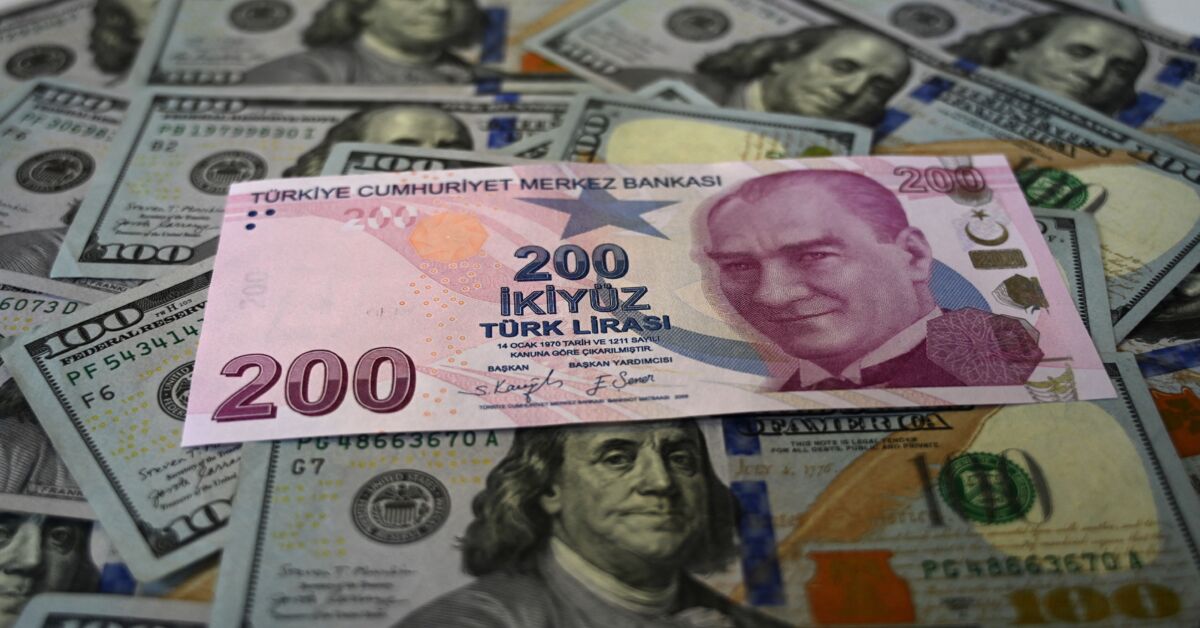The Turkish lira declined for a seventh straight day on Wednesday, bringing its losses to more than 5 percent since Russia launched its attack on Ukraine, raising inflation and current account risks for Turkey, Reuters reported.
The lira lost around 1.3 percent to stand at 14.6505 against the dollar by 0844 GMT, its weakest since Dec. 20, when the government announced a plan to protect lira deposits against currency depreciation.
In the first two months of the year, authorities were able to hold the lira in a tight band through costly interventions in the foreign exchange market and the lira protection scheme.
The currency blew through 14 against the dollar when volatility returned in late February as the tensions between Moscow and Kyiv rose, before rebounding.
The lira is now down some 10 percent since the end of 2021, a year in which it shed 44 percent of its value against the dollar.
The currency crisis was sparked by a central bank easing cycle, that saw the policy rate reduced 500 basis points to 14 percent since September.
Under the lira protection scheme, the Treasury makes up for the difference between the interest rate on lira deposits and the currency’s depreciation on the maturity date.
Enver Erkan, chief economist at Tera Brokers, said the lira’s depreciation is already putting pressure on public finances as the currency’s depreciation is higher than periodic yields, and the lira deposit scheme was becoming less sustainable.
“The burden on public finances means more indirect taxes or monetary expansion, which could lead to an inflationary spiral,” he said.
The interest rate cuts were part of President Recep Tayyip Erdoğan’s new economic plan that aims to turn Turkey’s chronic current account deficits to a surplus, raise growth, employment and exports while keeping low rates.
But the rise in commodity prices from oil to wheat due to Russia’s invasion of Ukraine are likely to lead to a larger deficit, while also further stoking inflation — already at 54 percent.
Tera’s Erkan said if there is a slowdown in the European industry due to the energy crisis, Turkey’s exports could also decline, risking a wider current account deficit.
Economists have said a rate hike is not in the cards, given Erdogan’s aversion to high borrowing costs.
“I think there should be a change in [the central bank’s] strategy given that keeping rates stable now is remaining behind the curve,” Erkan said, noting there has been no signal from authorities of a return to orthodox policies.
***Show us some LOVE by sharing it!***



